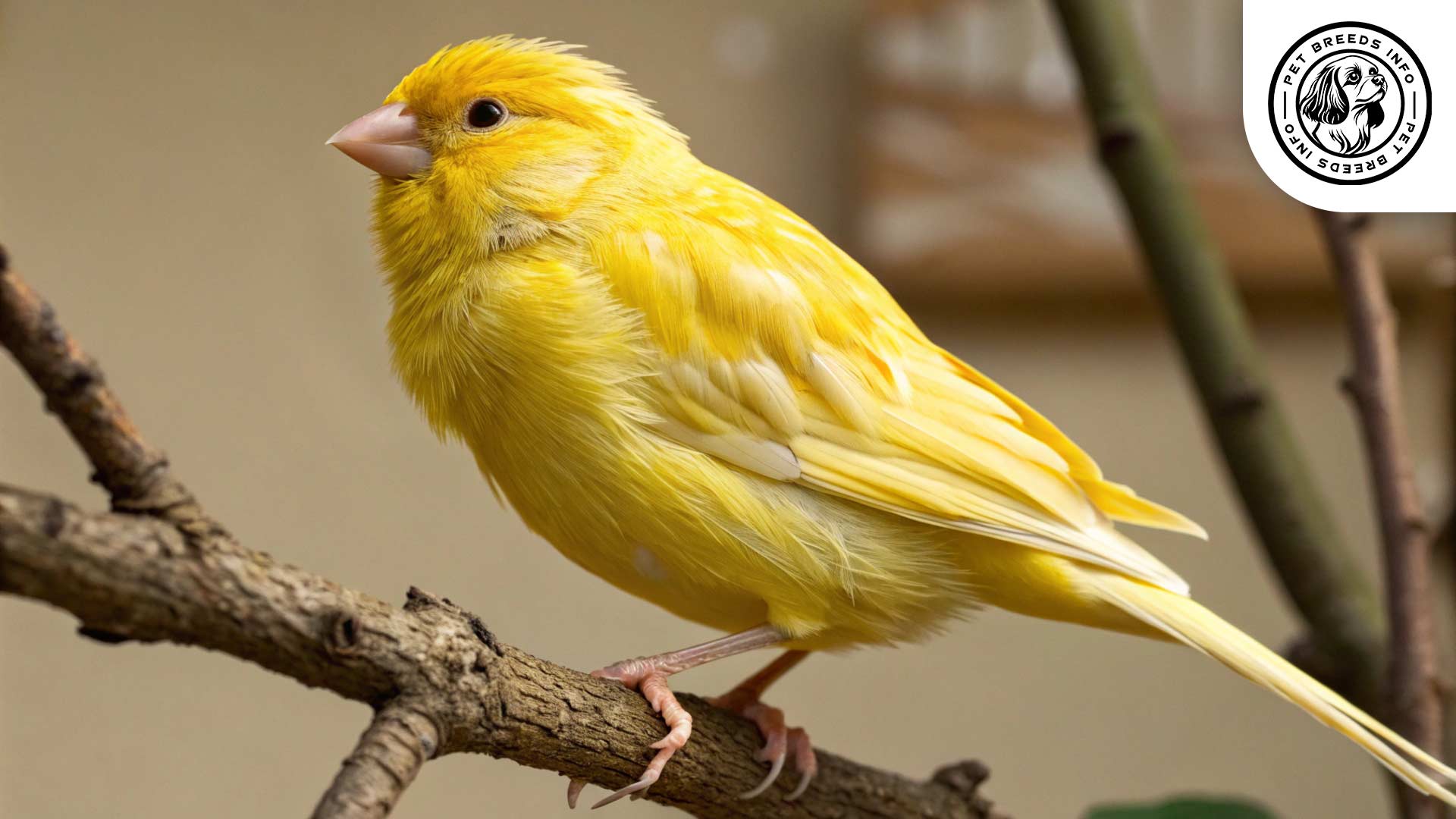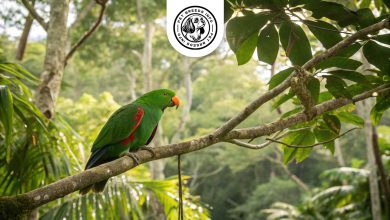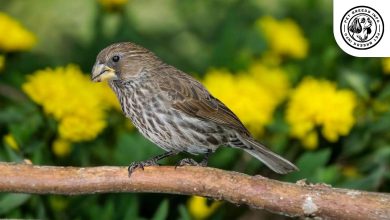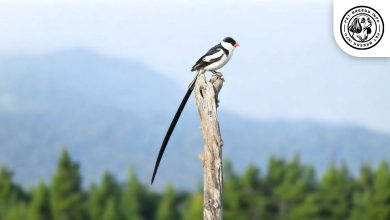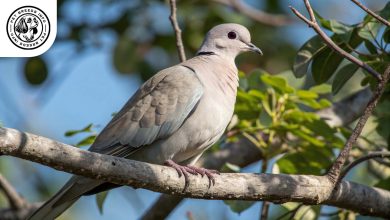Yorkshire Canary Breed: Personality, Lifespan, Food & Care
General Introduction of the Breed
The Yorkshire Canary, also known as the “Gentleman of the Fancy” or “Yorkshire Fancy Canary,” is a popular breed of domesticated canary (Serinus canaria domestica). It originates from England, particularly from the Yorkshire region, where it was selectively bred for its elegant appearance and sturdy build.
Development of this breed began in the 19th century, as breeders aimed to create a taller and slimmer canary by crossing the Lancashire Canary with the Belgian Canary. Over time, the Yorkshire Canary became a distinctive variety admired for its upright posture and beautiful plumage.
Table of Contents
| Common Name | Yorkshire Canary |
| Scientific Name | Serinus canaria domestica |
| Origin | England (Yorkshire region) |
| Size | 6–6.7 inches (15–17 cm) |
| Lifespan | 7–10 years |
| Primary Purpose | Ornamental / Songbird |
| Temperament | Independent, calm, mildly sociable |
| Cold-Hardy | No – prefers stable, moderate indoor climate |
Physical Characteristics
The Yorkshire Canary is a medium-sized bird, typically measuring between 6 to 6.7 inches (15 to 17 cm) in length. It has a well-proportioned body with a strong, upright stance.
Its plumage is smooth and dense, coming in a variety of colors, including yellow, white, green, and cinnamon. However, bright yellow remains the most popular and recognizable shade.
The eyes of the Yorkshire Canary are small, round, and dark in color. Its beak is short and conical, perfectly adapted for seed consumption.
This breed does not have prominent ears, as they are concealed beneath its feathers. Its tail is medium in length and elegant, complementing its slender body shape.
One of the most noticeable features of the Yorkshire Canary is its upright posture and sleek, elongated appearance, giving it an aristocratic and refined look.
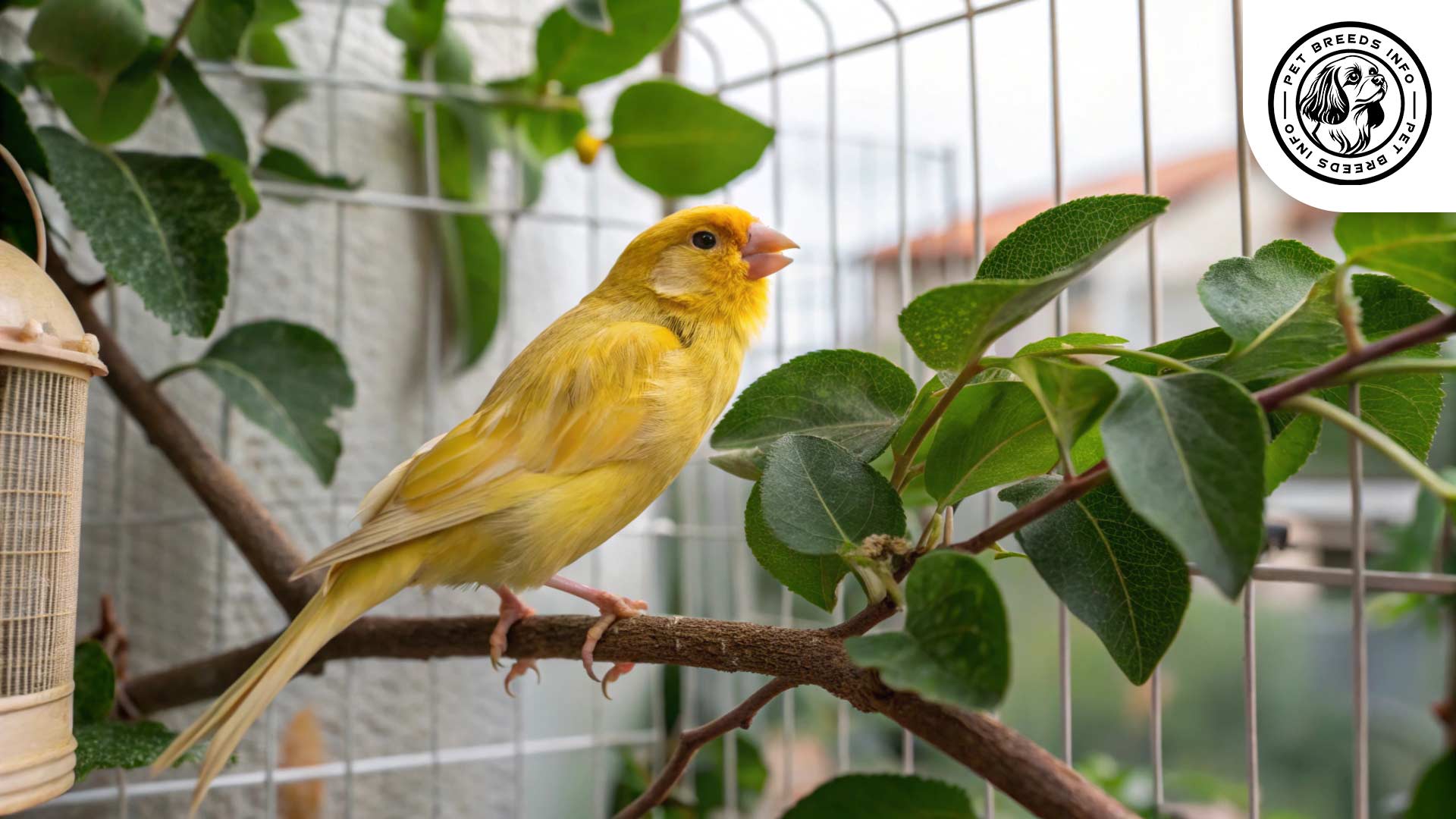
Personality and Temperament
The Yorkshire Canary is known for its intelligence and ease of learning sounds and melodies. While it is not the most melodious canary breed, it can still produce pleasant chirps and tunes.
It is a relatively active bird that enjoys flying and moving around within its enclosure. It requires space to exercise and stretch its wings.
This breed is not highly interactive with humans but can develop trust with consistent and gentle handling. Yorkshire Canaries are generally independent and do not require a high level of social interaction.
They are not particularly aggressive and can coexist with other small birds if introduced properly, though they prefer a calm and peaceful environment.
The Yorkshire Canary is quite sensitive to sudden environmental changes, such as temperature fluctuations, drafts, and loud noises. Therefore, a stable and quiet habitat is ideal.
Read More: Whiteface Cockatiel Bird
Care and Maintenance Requirements
The Yorkshire Canary requires daily exercise and mental stimulation. Providing a spacious cage or aviary with perches and toys helps maintain its well-being.
It can adapt to apartment living as long as it has enough room to move freely. A well-ventilated space with natural light is beneficial.
Grooming requirements for this breed are minimal. Occasional misting or bathing helps keep its feathers clean. It does not shed heavily, but regular monitoring for feather molting is necessary.
This breed is sensitive to extreme cold and drafts. Keeping its habitat at a moderate temperature is essential.
Maintaining hygiene is crucial for its health. Cleaning the cage regularly, providing fresh water daily, and trimming nails if necessary are basic care routines. Occasional beak trimming may also be required if it overgrows.
Diet and Nutrition
The Yorkshire Canary thrives on a diet of high-quality seeds, fresh fruits, and vegetables. Canary seed mixes with millet, flaxseed, and niger seed are highly recommended.
It benefits from a balanced diet supplemented with leafy greens, carrots, apples, and certain calcium sources like cuttlebone.
Avoid feeding avocado, chocolate, caffeine, and high-fat or salty foods, as these can be toxic to birds.
Portion sizes should be moderate, with fresh food provided daily. Fresh, clean water should always be available.
Read More: Hook Bill Duck
Health and Common Medical Issues
The Yorkshire Canary is generally a healthy breed, but it is susceptible to common canary health issues such as respiratory infections, mite infestations, and digestive problems.
Overgrown beaks and claws can become a problem if not monitored. Regular checks help prevent excessive growth.
The average lifespan of a Yorkshire Canary is 7 to 10 years with proper care.
Regular veterinary checkups, annual vaccinations, and parasite prevention are vital for maintaining its health.
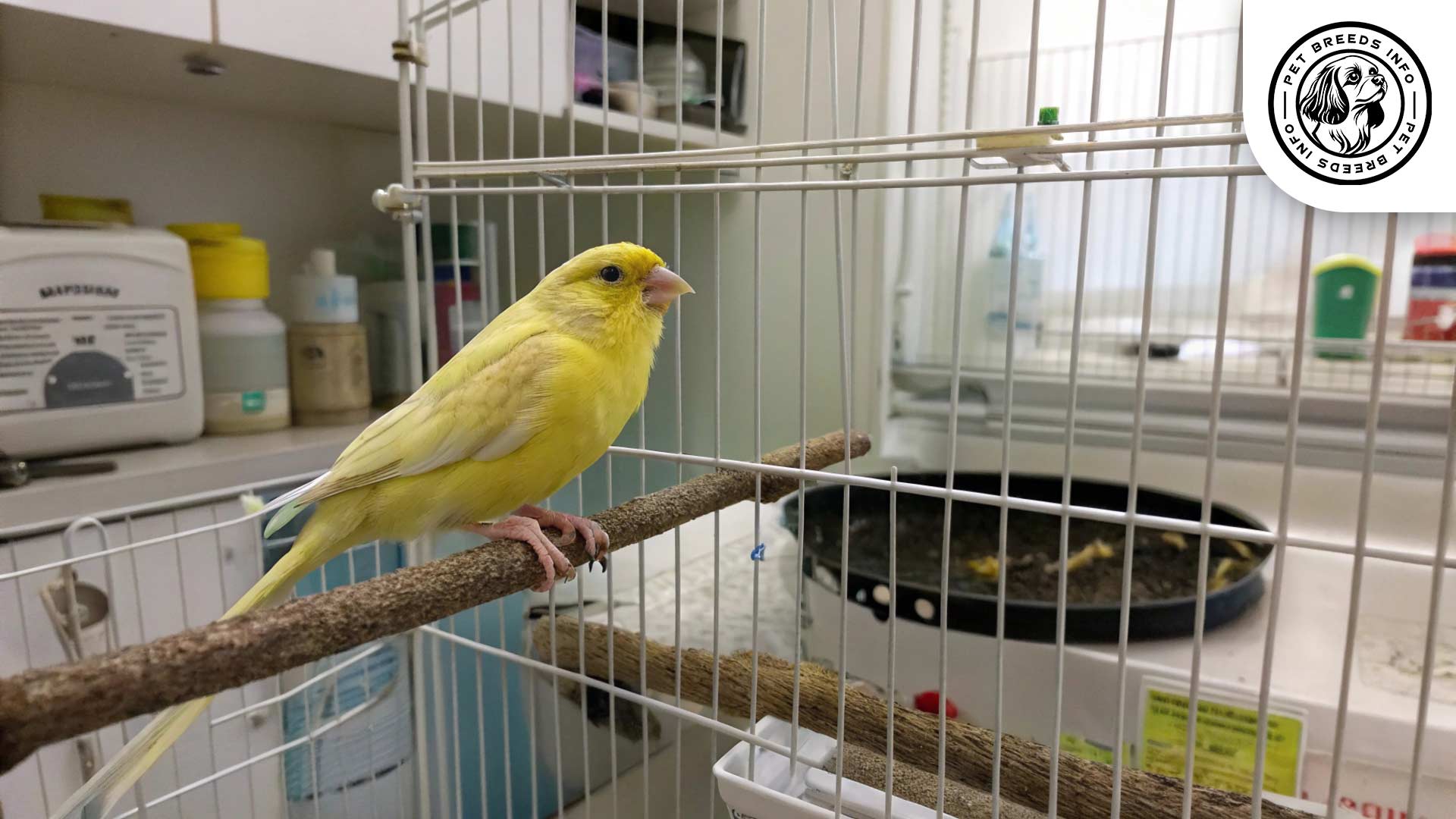
Training and Behavior Management
Training a Yorkshire Canary is relatively simple, focusing primarily on socialization and encouraging singing.
Early exposure to sounds and gentle interactions can help build trust with its owner.
Positive reinforcement techniques, such as offering treats and using soothing tones, are effective in encouraging good behavior.
It is best to avoid sudden hand movements, as this may startle the bird. Encouraging gradual interaction helps in taming efforts.
Interaction with Other Animals and Humans
The Yorkshire Canary can coexist with other birds, but it prefers a peaceful environment. It is not overly social and does not require companionship.
It can be an excellent pet for individuals or families who enjoy birds but do not expect hands-on interaction like that with parrots.
This breed enjoys independence but can form a bond with a gentle and patient owner who provides consistent care.
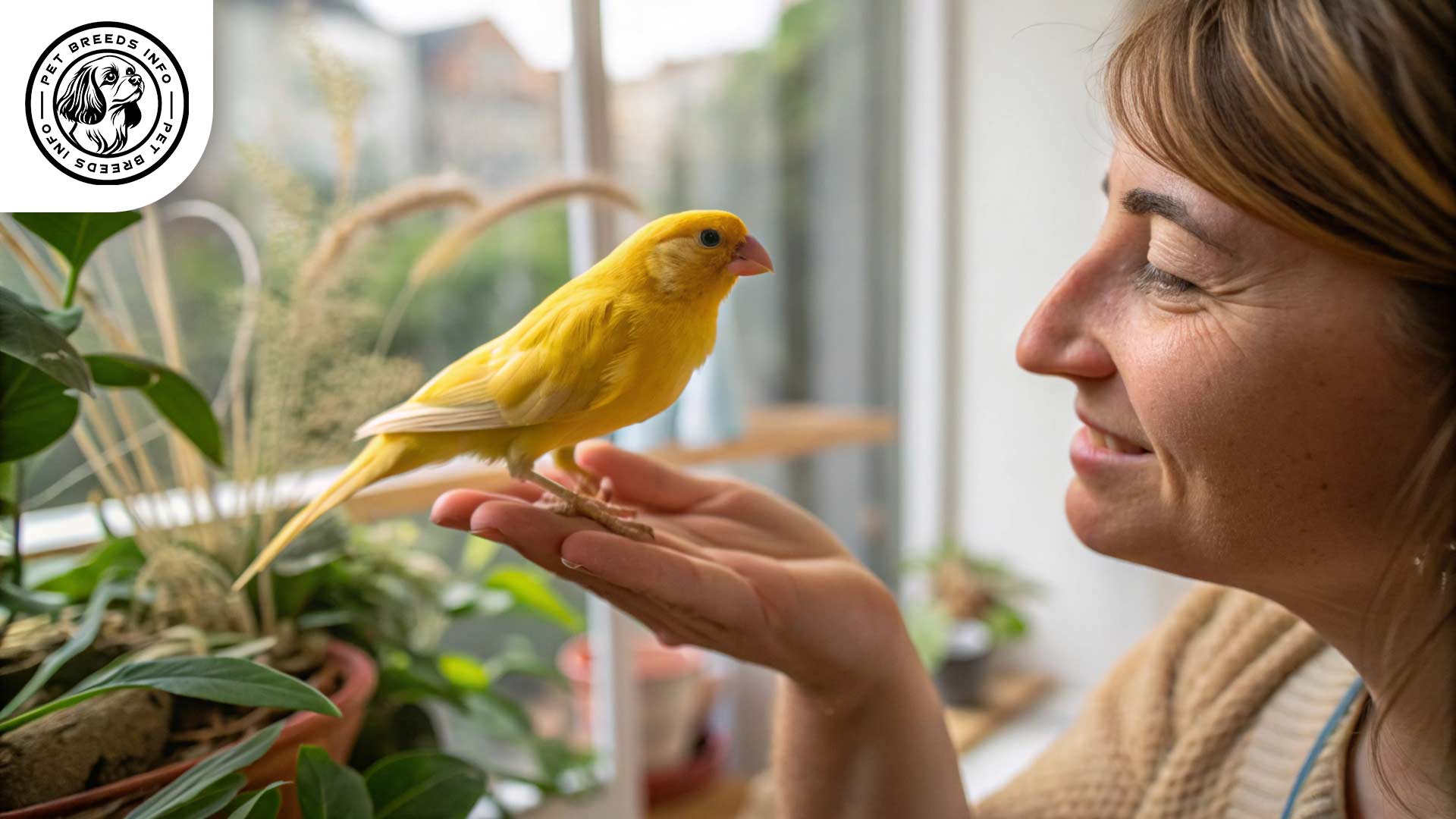
Price and Availability
The cost of a Yorkshire Canary varies depending on its quality, coloration, and breeder reputation. Prices typically range from $100 to $250.
When purchasing this breed, it is important to ensure that the bird is healthy, active, and comes from a reputable breeder who follows ethical breeding practices.
Reliable sources for obtaining a Yorkshire Canary include avian-specialized breeders, pet stores, and rescue organizations.
Read More: Harlequin Duck
Conclusion and Final Thoughts
The Yorkshire Canary is a distinguished and visually appealing bird that requires dedicated care and attention to maintain its health and well-being.
It is best suited for individuals or families who appreciate canaries for their beauty and singing ability rather than interactive companionship.
Prospective owners should consider its specific care needs, including diet, environmental conditions, and health management, before making a commitment.
With the right environment and consistent care, the Yorkshire Canary can be a delightful pet that brings charm and elegance to any home.
FAQ
Do Yorkshire Canaries sing well?
They have a pleasant song, though they’re not as melodious as some other canary breeds.
Can they be kept with other birds?
Yes, but they prefer a peaceful setting and should be housed with non-aggressive species.
Are they easy to handle?
They’re not very hands-on, but can become accustomed to gentle interaction over time.
Do they require a large cage?
A spacious cage or aviary is ideal to accommodate their upright posture and activity level.
How often do they need grooming?
Minimal grooming is needed—occasional baths and monitoring for overgrown nails or beak suffice.
